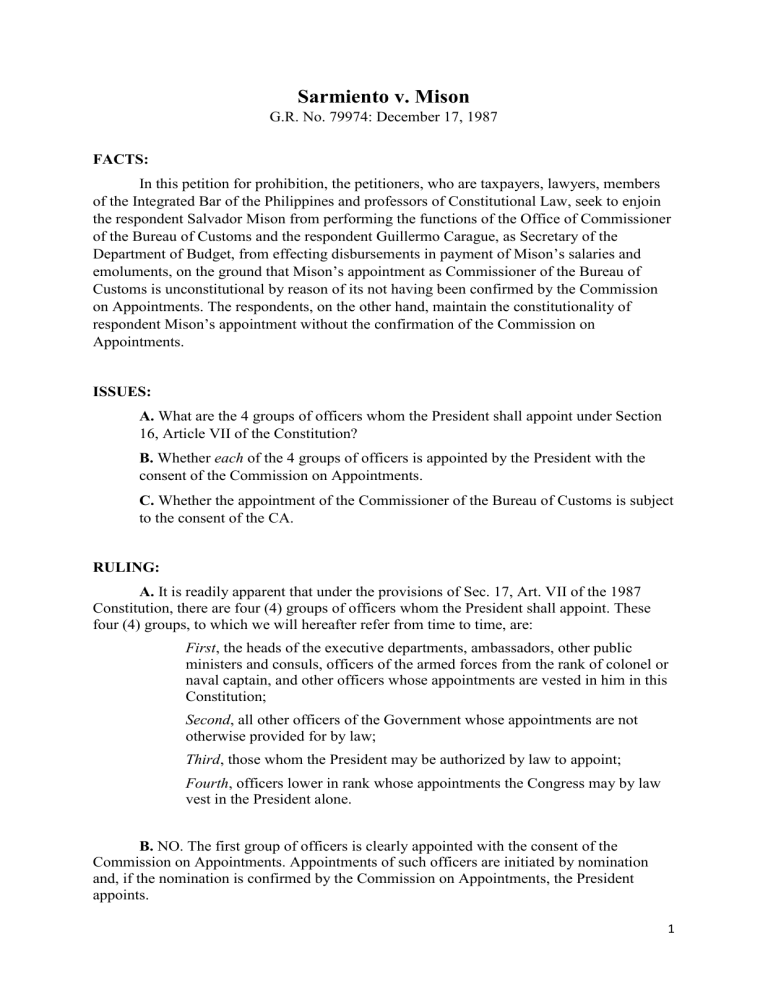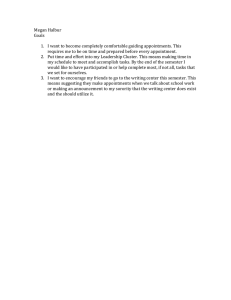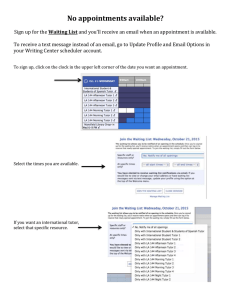
Sarmiento v. Mison G.R. No. 79974: December 17, 1987 FACTS: In this petition for prohibition, the petitioners, who are taxpayers, lawyers, members of the Integrated Bar of the Philippines and professors of Constitutional Law, seek to enjoin the respondent Salvador Mison from performing the functions of the Office of Commissioner of the Bureau of Customs and the respondent Guillermo Carague, as Secretary of the Department of Budget, from effecting disbursements in payment of Mison’s salaries and emoluments, on the ground that Mison’s appointment as Commissioner of the Bureau of Customs is unconstitutional by reason of its not having been confirmed by the Commission on Appointments. The respondents, on the other hand, maintain the constitutionality of respondent Mison’s appointment without the confirmation of the Commission on Appointments. ISSUES: A. What are the 4 groups of officers whom the President shall appoint under Section 16, Article VII of the Constitution? B. Whether each of the 4 groups of officers is appointed by the President with the consent of the Commission on Appointments. C. Whether the appointment of the Commissioner of the Bureau of Customs is subject to the consent of the CA. RULING: A. It is readily apparent that under the provisions of Sec. 17, Art. VII of the 1987 Constitution, there are four (4) groups of officers whom the President shall appoint. These four (4) groups, to which we will hereafter refer from time to time, are: First, the heads of the executive departments, ambassadors, other public ministers and consuls, officers of the armed forces from the rank of colonel or naval captain, and other officers whose appointments are vested in him in this Constitution; Second, all other officers of the Government whose appointments are not otherwise provided for by law; Third, those whom the President may be authorized by law to appoint; Fourth, officers lower in rank whose appointments the Congress may by law vest in the President alone. B. NO. The first group of officers is clearly appointed with the consent of the Commission on Appointments. Appointments of such officers are initiated by nomination and, if the nomination is confirmed by the Commission on Appointments, the President appoints. 1 The Court has chosen to derive significance from the fact that the first sentence speaks of nomination by the President and appointment by the President with the consent of the Commission on Appointments, whereas, the second sentence speaks only of appointment by the President. And, this use of different language in two (2) sentences proximate to each other underscores a difference in message conveyed and perceptions established, in line with Judge Learned Hand’s observation that “words are not pebbles in alien juxtaposition” but, more so, because the recorded proceedings of the 1986 Constitutional Commission clearly and expressly justify such differences. It is, therefore, clear that appointments to the second and third groups of officers can be made by the President without the consent (confirmation) of the Commission on Appointments. Since the 1935 Constitution subjects, as a general rule, presidential appointments to confirmation by the Commission on Appointments, the same 1935 Constitution saw fit, by way of an exception to such rule, to provide that Congress may, however, by law vest the appointment of inferior officers (equivalent to 11 officers lower in rank” referred to in the 1987 Constitution) in the President alone, in the courts, or in the heads of departments, In the 1987 Constitution, however, as already pointed out, the clear and expressed intent of its framers was to exclude presidential appointments from confirmation by the Commission on Appointments, except appointments to offices expressly mentioned in the first sentence of Sec. 16, Article VII. Consequently, there was no reason to use in the third sentence of Sec. 16, Article VII the word “alone” after the word “President” in providing that Congress may by law vest the appointment of lower-ranked officers in the President alone, or in the courts, or in the heads of departments, because the power to appoint officers whom he (the President) may be authorized by law to appoint is already vested in the President, without need of confirmation by the Commission on Appointments, in the second sentence of the same Sec. 16, Article VII. C. NO. It is evident that the position of Commissioner of the Bureau of Customs (a bureau head) is not one of those within the first group of appointments where the consent of the Commission on Appointments is required. As a matter of fact, as already pointed out, while the 1935 Constitution includes “heads of bureaus” among those officers whose appointments need the consent of the Commission on Appointments, the 1987 Constitution on the other hand, deliberately excluded the position of “heads of bureaus” from appointments that need the consent (confirmation) of the Commission on Appointments. 2


